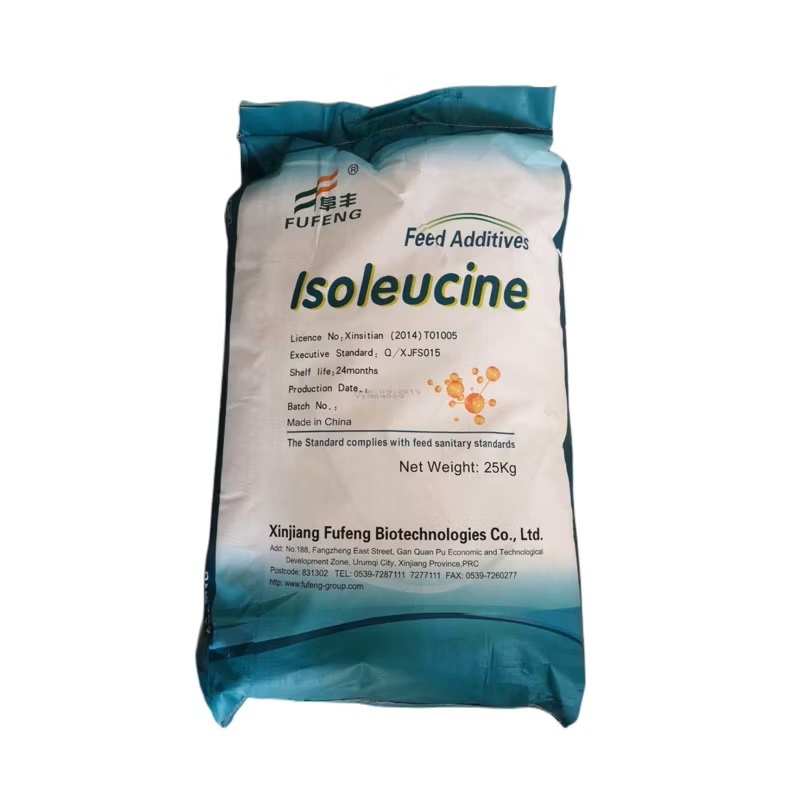We unleash your business potential by maximize the business innovation.
Send EmailIsoleucine, L-Isoleucine, 73-32-5
L-Isoleucine – Product Profile
Chemical and Physical Properties
-
Chemical Formula: C₆H₁₃NO₂
-
Molecular Weight: 131.17 g/mol
-
CAS Number: 73-32-5
-
Appearance: White crystalline powder
-
Solubility: Soluble in water; insoluble in ethanol and ether
-
Melting Point: ~284 °C (decomposition)
-
Density: ~1.23 g/cm³
Applications
-
Sports Nutrition & Supplements:
-
Core component of BCAA blends (with leucine and valine).
-
Supports muscle recovery and energy supply during prolonged exercise.
-
Helps regulate blood sugar and energy metabolism.
-
-
Dietary Supplements:
-
Found in protein powders, amino acid blends, and fortified foods.
-
Often combined with leucine and valine in 2:1:1 ratios.
-
-
Medical Applications:
-
Studied for use in muscle wasting conditions, liver disease, and metabolic disorders.
-
Plays a role in hemoglobin synthesis and immune function.
-
-
Food Industry:
-
Incorporated into functional foods, protein bars, and sports beverages.
-
-
Research & Biochemistry:
-
Used in amino acid metabolism studies and protein synthesis research.
-
Synonyms and Other Names
-
L-Isoleucine
-
Isoleucine
-
2-Amino-3-methylpentanoic acid
-
(2S,3S)-2-Amino-3-methylpentanoic acid
-
Essential branched-chain amino acid (BCAA)
Common Terms:
-
“Recovery amino acid”
-
“Energy-support amino acid”
L-Isoleucine – Sectoral Suitability Table
| Sector | Application Purpose | Suitability | Notes / Considerations |
|---|---|---|---|
| Sports Nutrition & Supplements | Supports recovery, endurance, and energy metabolism | High suitability | Widely used in BCAA blends; often balanced with leucine and valine |
| Dietary Supplements | Protein powders, amino acid blends, functional foods | Moderate suitability | Must comply with food regulations and labeling requirements |
| Medical Applications | Muscle wasting, liver disease, metabolic disorders | Limited suitability | Requires GMP-grade purity and clinical oversight |
| Functional Foods | Sports drinks, protein bars, fortified foods | Moderate suitability | Labeling and claims must follow food law |
| Animal Nutrition | Growth and performance support | Low suitability | Rarely used; cost and regulation limit adoption |
| Industrial Chemicals / R&D | Amino acid metabolism and protein synthesis studies | Moderate suitability | Primarily for laboratory and academic research |
| Cosmetics | Anti-aging and skin recovery potential (experimental) | Low suitability | Still at research stage; not common in mainstream cosmetics |
Summary
L-Isoleucine (CAS 73-32-5) is an essential branched-chain amino acid that plays a key role in muscle recovery, energy metabolism, and blood sugar regulation. It is widely used in sports nutrition and supplements, with secondary applications in dietary products and medical research. Together with leucine and valine, it forms the BCAA trio critical for athletic performance and protein synthesis.

